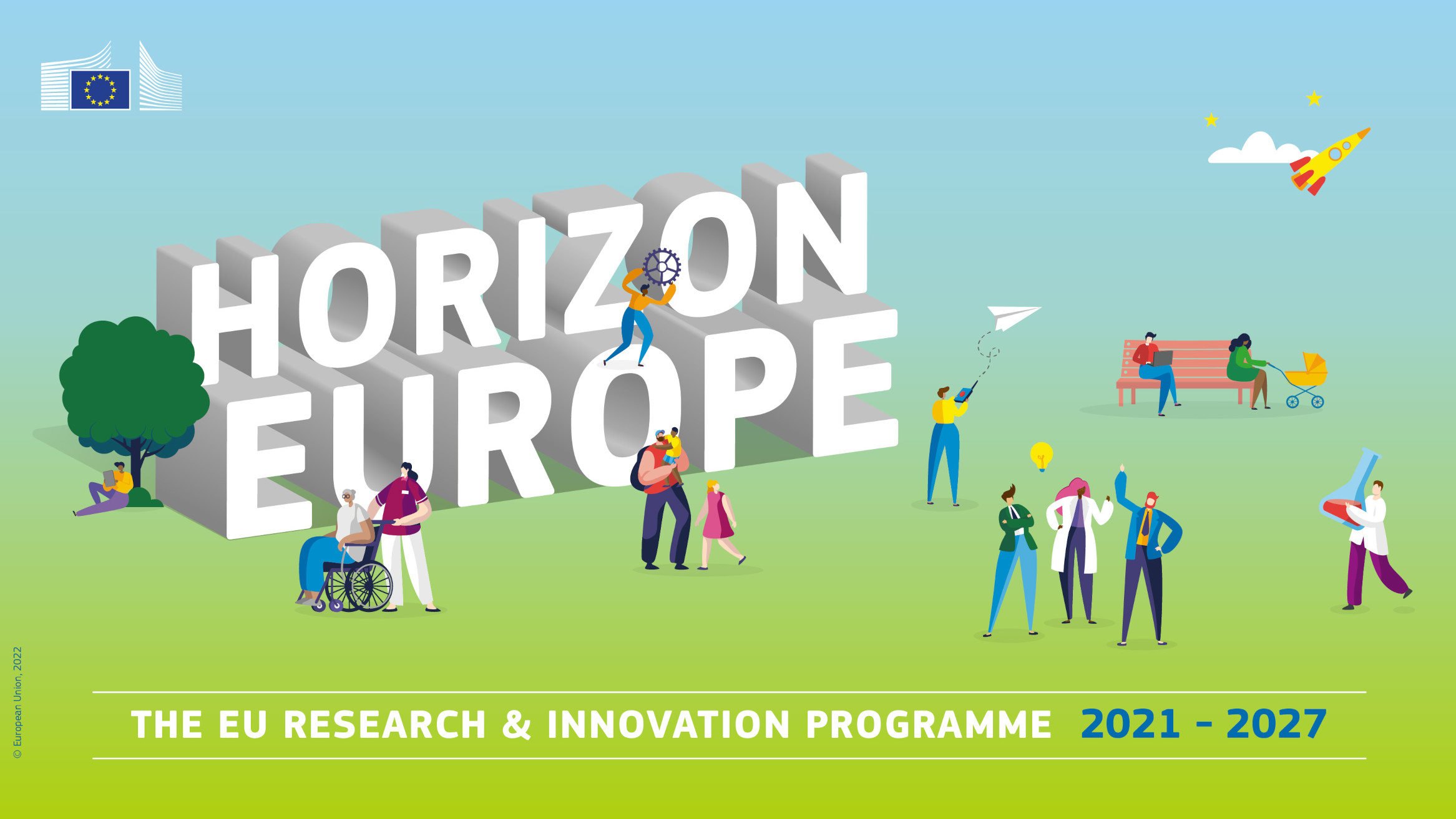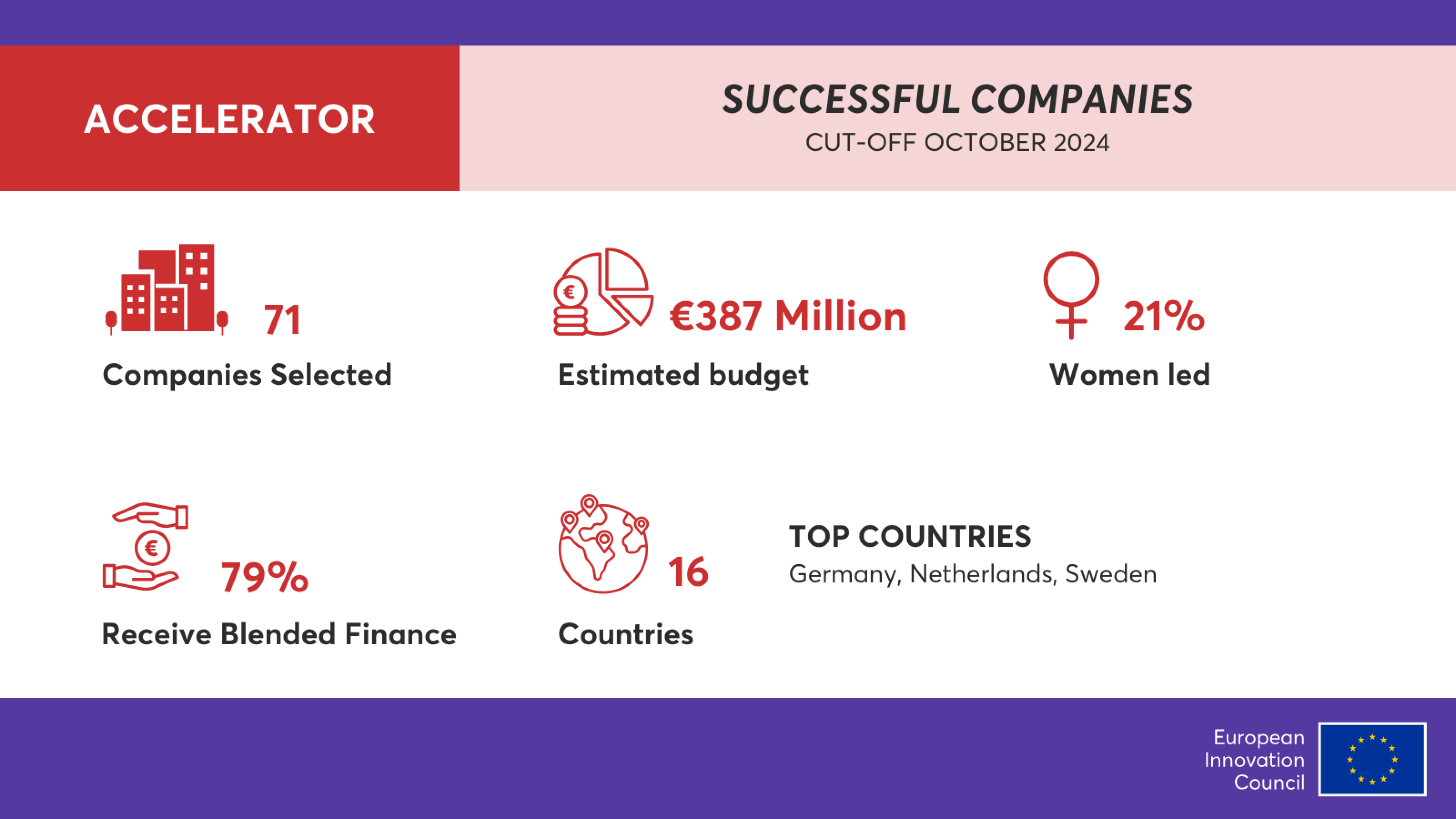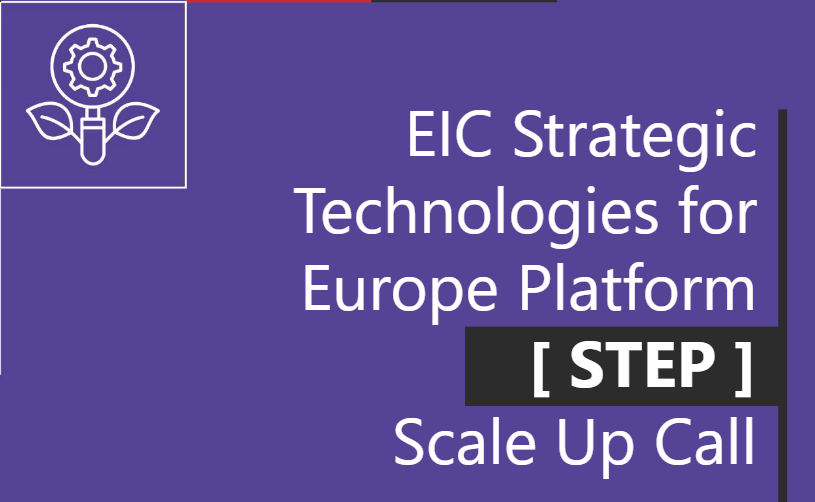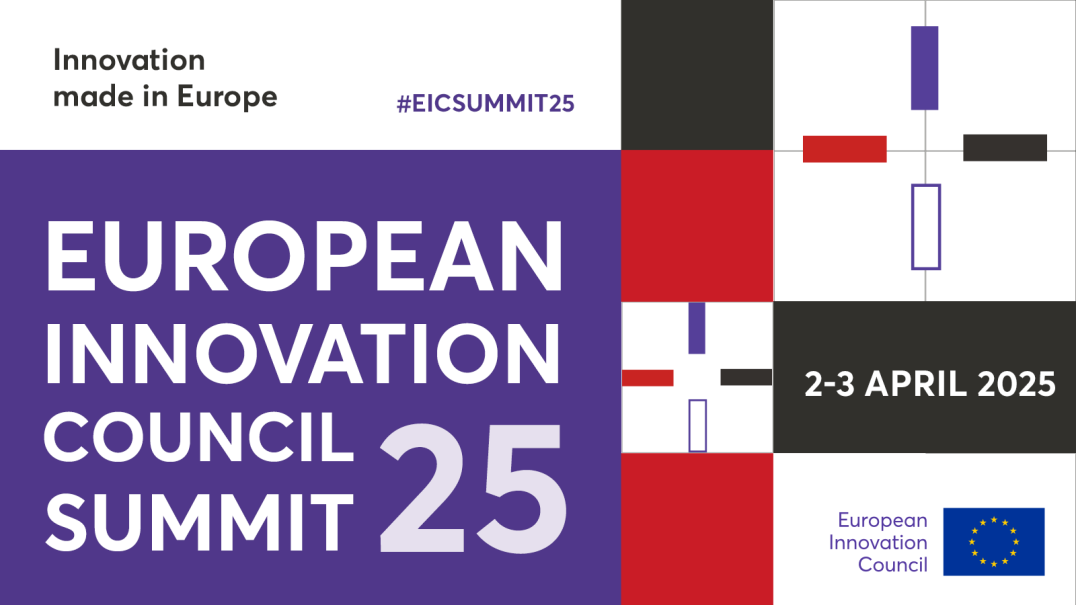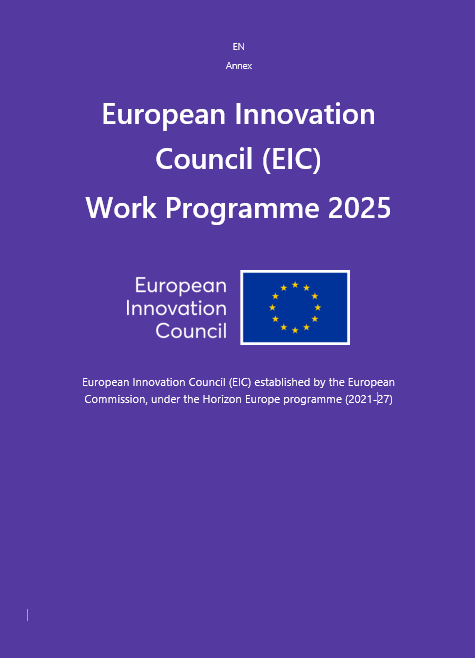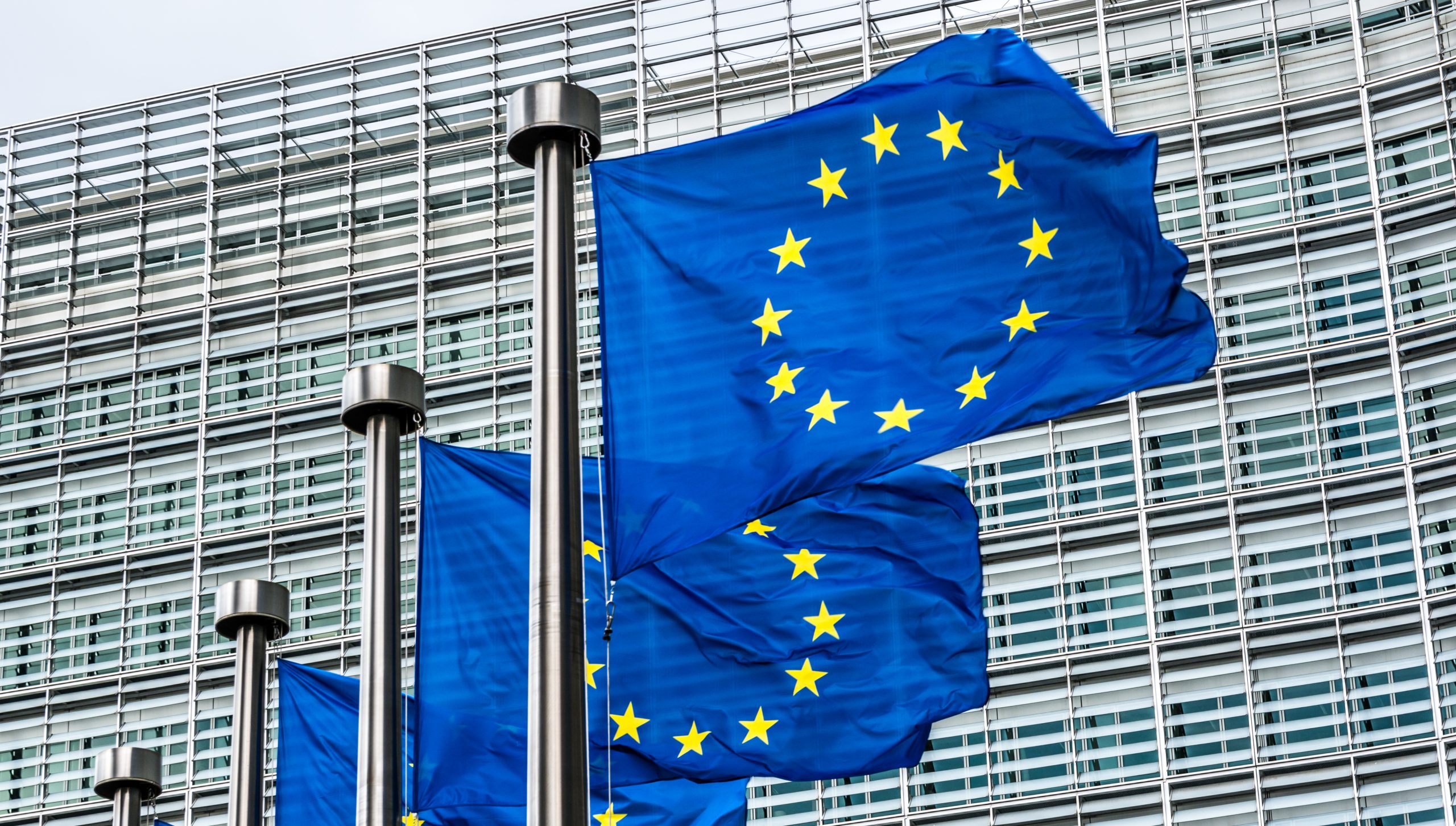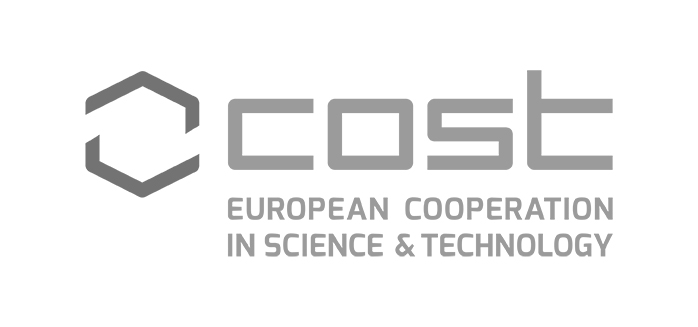EC Launches Ambitious Strategy to Boost Startups and Scaleups
On 28th May 2025, the European Commission (EC) unveiled its ambitious EU Startup and Scaleup Strategy, aiming to position the European Union (EU) as the premier destination for technology-driven innovative companies. Central to this initiative is the expansion and simplification of the European Innovation Council (EIC), designed to provide enhanced funding opportunities for startups and scaleups, particularly in the deep tech sector.
Key Components of the Strategy
- Innovation-Friendly Regulation: The EC plans to simplify existing rules, reduce administrative burdens, and introduce regulatory sandboxes. These measures are intended to create a more conducive environment for startups and scaleups to innovate and grow.
- Enhanced Financial Support: The strategy includes the establishment of a Scaleup Europe Fund and efforts to mobilize institutional investors. These initiatives aim to bridge the financing gap for deep tech companies, facilitating their growth and competitiveness.
- Talent Development and Retention: Initiatives such as "Lab to Unicorn," "Blue Carpet," and the "EU Visa Strategy" are set to attract and retain top talent. These programs focus on nurturing innovative ideas from the lab stage to full-scale commercial success, ensuring that the EU remains a hub for cutting-edge innovation.
- Infrastructure Access: The EC will provide easier access to research and technology infrastructures. Additionally, the introduction of a Charter of Access for industrial users aims to support the rapid commercialisation of innovative solutions.
Monitoring and Evaluation
To assess the effectiveness of the strategy, the EC will monitor progress through key performance indicators. These include tracking the increase in the number of startups, scaleups, centaurs (companies valued over €100 million), and unicorns (companies valued over €1 billion) within the EU. A comprehensive report on the implementation and outcomes of the strategy is scheduled for release by the end of 2027.
Implications for the European Innovation Ecosystem
This comprehensive strategy highlights the EU's commitment to fostering a robust innovation ecosystem. By addressing regulatory, financial, talent, and infrastructural challenges, the EC aims to create an environment where startups and scaleups can thrive. The focus on deep tech and the expansion of the EIC are particularly noteworthy, as they signal a strategic move to position the EU at the forefront of technological advancement.
For entrepreneurs, investors, and stakeholders within the EU, this strategy presents new opportunities for growth, collaboration, and innovation. As the implementation unfolds, it will be crucial to engage with the various programs and initiatives to fully leverage the support mechanisms being introduced.
Horizon Europe 2025 Work Programme Announced
Driving Europe's Innovation Ambition
The European Commission (EC) has officially launched the Horizon Europe 2025 Work Programme, a major milestone in the EU’s €95.5 billion flagship research and innovation initiative. Covering a critical year within the 2025–2027 strategic cycle, this Work Programme defines Europe's science and innovation priorities, setting a clear path towards tackling global challenges, accelerating the green and digital transitions, and securing Europe's position as a global leader in innovation.
This new Work Programme builds directly upon the Horizon Europe Strategic Plan 2025–2027, which set three overarching strategic orientations: a green transition, a digital transition, and a more resilient, competitive, inclusive, and democratic Europe.
Strategic Priorities for 2025
The 2025 Work Programme supports three interconnected priorities:
1. Green Transition:
o Accelerating progress towards climate neutrality and sustainability.
o Protecting biodiversity and promoting circular economy practices.
2. Digital Transition:
o Strengthening Europe's digital sovereignty and advancing artificial intelligence, quantum technologies, cybersecurity, and next-generation computing.
3. Resilient and Inclusive Society:
o Building economic competitiveness, safeguarding democratic institutions, and promoting inclusivity and social resilience.
This programme focuses on open strategic autonomy and aims to strengthen Europe's technological and industrial leadership, while ensuring that the transitions are socially fair and inclusive.
Funding Overview
In 2025, over €7.2 billion will be invested across Horizon Europe's pillars and thematic clusters. The funding distribution reflects the EU’s commitment to scientific excellence, global competitiveness, and societal impact.
The programme is structured around Horizon Europe's three pillars:
• Pillar I: Excellent Science
o Supports frontier research via the European Research Council (ERC) and the Marie Skłodowska-Curie Actions (MSCA) for researcher mobility and training.
o Strengthens world-class research infrastructures critical for advanced science.
• Pillar II: Global Challenges and European Industrial Competitiveness
o Funds research under six thematic clusters:
- Health
- Culture, Creativity, and Inclusive Society
- Civil Security for Society
- Digital, Industry, and Space
- Climate, Energy, and Mobility
- Food, Bioeconomy, Natural Resources, Agriculture, and Environment
- Encourages cross-sector collaboration to tackle complex societal challenges.
• Pillar III: Innovative Europe
o Advances innovation ecosystems, notably through the European Innovation Council (EIC), supporting breakthrough technologies and high-potential companies.
o Strengthens the European Institute of Innovation and Technology (EIT) and regional innovation hubs.
Beyond the three pillars, the programme also includes actions to widen participation and strengthen the European Research Area (ERA), ensuring all member states benefit from scientific progress and innovation.
Green and Climate Focus
In line with the European Green Deal, the 2025 Work Programme reinforces Europe's leadership in environmental innovation:
• 35% of Horizon Europe's total budget is earmarked for climate-related activities.
• A new and notable commitment is that at least 10% of the Horizon Europe budget will now be dedicated specifically to biodiversity-related research.
Topics will address renewable energy systems, zero-emission mobility, climate adaptation, sustainable food systems, and restoration of ecosystems, helping Europe meet its 2030 climate and biodiversity targets.
European Innovation Council 2025 Actions
The European Innovation Council (EIC) plays a pivotal role in the 2025 Work Programme, with over €1.4 billion in funding to accelerate deep tech innovation.
The EIC's three major funding instruments are:
• EIC Pathfinder: Supports early-stage, high-risk research into revolutionary technologies.
• EIC Transition: Bridges the gap between research and market by funding proof-of-concept and prototype development.
• EIC Accelerator: Provides grants and blended finance (grants plus equity investment) to scale up start-ups and SMEs, especially in strategic areas such as health, digital, and clean tech.
The EIC continues to position Europe at the forefront of deep tech entrepreneurship, driving the next generation of global technology champions.
Widening Participation and Strengthening the ERA
The 2025 programme places strong emphasis on inclusivity and geographic balance across Europe. Actions under the Widening Participation and Strengthening the ERA section aim to:
• Boost the research and innovation capacity of less-performing countries (often referred to as “Widening countries”).
• Promote brain circulation and reduce the R&D divide across regions.
• Strengthen gender equality, open science practices, and citizen engagement in research activities.
By creating more equitable opportunities for participation, the EU ensures that excellence is fostered across all regions, not just in traditional innovation hubs.
International Collaboration
Recognising that global challenges require global solutions; the 2025 Work Programme maintains a strong emphasis on international cooperation.
Key initiatives include:
• Targeted collaboration with strategic partner countries and regions, notably Africa, the Western Balkans, and Latin America.
• Specific calls for cooperation in areas like global health, climate action, and resilient food systems.
The EU continues to position Horizon Europe as an open platform for global scientific collaboration, while safeguarding Europe's strategic interests and ethical standards.
Stakeholder Consultation and Co-Design Approach
In shaping the 2025 Work Programme, the EC engaged extensively with stakeholders through a consultation process between April and May 2024. Researchers, industry leaders, policymakers, and civil society representatives contributed feedback, ensuring that the programme reflects the needs, expectations, and expertise of Europe's innovation community.
This co-design approach ensures greater relevance, transparency, and impact across funded projects.
For more information about the Horizon Europe work programmes, click here.
EC Invests €1.3B in Digital Europe Programme
On 28th March 2025, the European Commission announced a significant investment of €1.3 billion aimed at bolstering Europe's capabilities in artificial intelligence (AI), cybersecurity, and digital skills. This funding is part of the Digital Europe Programme's work plan for 2025 to 2027, highlighting the EU's commitment to enhancing its technological sovereignty and accelerating digital transformation across member states.
Note to reader: The United Kingdom is not currently associated with the European Union’s Digital Europe Programme following Brexit. This means UK-based organisations are not eligible to apply for or receive funding through the programme. If you are based in the UK, this article is for information purposes only.
Strategic Focus Areas
The allocated funds will be directed toward several key areas:
- Artificial Intelligence (AI) Deployment and Adoption: The initiative aims to facilitate the integration of AI technologies into both businesses and public administrations, promoting innovation and efficiency.
- Cloud and Data Infrastructure: Investments will support the development of robust cloud services and data infrastructures, ensuring secure and efficient data management and accessibility.
- Cyber Resilience: Enhancing cybersecurity measures is a priority to protect digital assets and infrastructures from evolving cyber threats.
- Digital Skills Development: The programme emphasises the importance of equipping citizens with the necessary digital skills to thrive in an increasingly digital economy.
Implementation and Accessibility
The European Commission plans to roll out calls for proposals starting in April 2025, with additional opportunities expected throughout the year. These calls will be accessible to businesses, public administrations, and other entities from EU Member States, EFTA/EEA countries, and nations associated with the Digital Europe Programme.
Interested parties can find detailed information on open calls and application procedures on the Digital Europe website.
Alignment with Broader EU Digital Strategies
This investment aligns with the EU's broader digital strategies, including the 2030 Digital Compass, which outlines Europe's digital ambitions for the next decade. By focusing on critical areas such as AI, cybersecurity, and digital skills, the EU aims to position itself as a leader in the global digital landscape.
Henna Virkkunen, the European Commission's digital chief, emphasised the importance of this initiative, stating, "Securing European tech sovereignty starts with investing in advanced technologies and in making it possible for people to improve their digital competences."
Expected Impact
The €1.3 billion investment is anticipated to have a transformative impact on Europe's digital ecosystem by:
- Driving Innovation: Facilitating the development and adoption of cutting-edge AI technologies across various sectors.
- Enhancing Security: Strengthening cybersecurity frameworks to protect critical infrastructures and data.
- Building a Skilled Workforce: Providing citizens with the digital skills necessary to participate effectively in the digital economy.
- Fostering Economic Growth: Enabling businesses, especially SMEs, to leverage digital technologies for increased competitiveness and market expansion.
This strategic investment reflects the EU's commitment to creating a resilient, inclusive, and forward-looking digital environment that benefits all its citizens and positions Europe at the forefront of global technological advancements.
EIC Accelerator (Oct '24 Cut-Off) Results Announced
The European Innovation Council (EIC) Accelerator programmes provides up to €2.5m of grant funding and up to of €15m of equity to support innovative start-ups and small to medium-sized enterprises (SMEs) developing groundbreaking technologies and solutions which are at Technology Readiness Level 6 or above.
Overview of the February 2025 Funding Round
In the latest funding round (results announced in February 2025), the EIC Accelerator received a record-breaking 1,211 full applications from start-ups and SMEs for the 3rd October 2024, cut-off. Of these applications, 431 were invited to jury interviews, with 71 companies selected for funding. This selection translates to an overall success rate of approximately 5.9% from Step 2 to the final selection, highlighting the rigorous and competitive nature of the process.
The total funding allocated in this round amounts to €387 million, with an average of €5.45 million per company. The funding types awarded were as follows:
- Blended Finance (Grant + Equity): 56 companies (78.9%)
- Equity-Only: 5 companies (7.0%)
- Grant-Only: 10 companies (14.1%)
The significant emphasis on blended finance indicates the EIC's strategy to combine immediate financial support with long-term investment, ensuring sustained growth and scalability for the selected companies.
Geographical Distribution and UK Participation
The 71 selected companies represent a diverse geographical spread, spanning 16 countries. The top-performing countries in this round include Germany (15 companies), the Netherlands (11 companies), and Sweden (7 companies). Notably, the UK had 5 companies selected, accounting for 7% of the total.
This representation is particularly significant for UK-based entities. Despite the challenges posed by the UK's departure from the European Union, the EIC Accelerator remains accessible to UK applicants, albeit with certain limitations. UK companies are eligible to apply for the "grant-only" scheme, excluding them from equity-based funding components. This adjustment necessitates a strategic approach for UK applicants, focusing on maximizing the potential of grant funding to drive innovation and growth.
Success Rates and Application Process
The EIC Accelerator's selection process is highly competitive, with success rates reflecting the program's rigorous standards:
- Step 2 Success Rate: 36%
- Step 3 Success Rate: 16%
- Overall Success Rate (from Step 2 to Final Selection): 5.9%
These statistics indicate that while the journey from application to selection is challenging, a significant proportion of applicants who advance to Step 2 have a viable chance of securing funding. Understanding and navigating this process effectively is crucial to enhancing their prospects.
Why UK Entities Should Consider Applying
- Access to Substantial Funding: The EIC Accelerator offers grants of up to €2.5 million, providing substantial financial support to propel innovative projects. For UK companies, securing such funding can be transformative, enabling the development and scaling of cutting-edge solutions.
- Recognition and Credibility: Being selected by the EIC Accelerator not only provides financial backing but also serves as a mark of excellence and credibility. This recognition can open doors to additional funding opportunities, partnerships, and market expansion.
- Business Acceleration Services: Beyond funding, the EIC offers Business Acceleration Services, granting access to expertise, corporate partners, investors, and innovation ecosystems. These resources are invaluable for companies aiming to scale and penetrate new markets.
- Encouragement of Female Leadership: The EIC actively promotes diversity, with 21% of the selected companies in this round being led by women (as CEO, CSO, or CTO). UK companies with female leadership are particularly encouraged to apply, aligning with the EIC's commitment to fostering inclusive innovation.
Considerations for UK Applicants
While the "grant-only" limitation requires UK applicants to forgo equity funding, this constraint can be strategically navigated:
- Leveraging National Resources: UK companies can complement EIC grant funding with national programs and private investments. This blended approach can offset the absence of EIC equity funding, ensuring comprehensive financial support.
- Building Strong Consortia: Collaborating with entities from EU member states can enhance the project's value proposition and align it more closely with EIC priorities, potentially increasing the chances of success.
- Emphasizing EU Market Integration: Demonstrating a clear strategy for integrating and scaling within the EU market can make applications more compelling, showcasing the potential for broader European impact.
Strategic Areas of Focus
The EIC Accelerator is dedicated to supporting innovative startups and SMEs across a wide array of sectors. While the program is open to all fields of technology, it places a particular emphasis on strategic areas that align with broader EU policies and address pressing societal challenges:
Health and Biotechnology:
- Medical Technologies: Development of advanced medical devices, diagnostics, and therapeutic solutions.
- Biopharmaceuticals: Innovations in drug discovery, vaccine development, and personalised medicine.
- Biotechnology Applications: Projects focusing on bioproducts, biofuels, and bioremediation.
Energy and Environment:
- Renewable Energy Solutions: Technologies harnessing solar, wind, hydro, and other renewable sources.
- Energy Storage and Efficiency: Innovations in batteries, supercapacitors, and energy management systems.
- Environmental Protection: Projects aimed at pollution reduction, waste management, and circular economy initiatives.
Digital and Deep Tech:
- Artificial Intelligence (AI): Development of AI-driven applications across various industries.
- Quantum Computing: Advancements in quantum technologies for computing and communication.
- Cybersecurity: Innovations ensuring data protection and network security.
Advanced Materials and Manufacturing:
- Nanomaterials: Creation of materials with novel properties for industrial applications.
- Smart Manufacturing: Integration of IoT and automation in production processes.
- Construction Technologies: Innovations in building materials and sustainable construction practices.
Agriculture and Food:
- Sustainable Farming: Technologies promoting precision agriculture and resource-efficient farming.
- Food Biotechnology: Development of alternative proteins and food products with reduced environmental impact.
- Aquaculture: Innovations in sustainable fish farming and aquatic ecosystem management.
Space and Mobility:
- Satellite Technologies: Development of components and systems for space exploration and communication.
- Advanced Mobility Solutions: Innovations in electric vehicles, autonomous transportation, and smart logistics.
- Aerospace Engineering: Projects focusing on aircraft design, propulsion systems, and air traffic management.
The EIC STEP Scale-Up Programme
The Strategic Technologies for Europe Platform (STEP) Scale-Up Programme is a pivotal new initiative under the European Innovation Council (EIC), designed to provide large-scale equity investments for deep-tech startups. With an initial €300 million budget in 2025, expanding to €900 million by 2027, the programme targets strategic sectors including digital technologies, clean energy, and biotech. By bridging the funding gap for high-potential European companies, STEP aims to reduce Europe’s reliance on non-EU technology providers and strengthen the region’s innovation ecosystem.
Background
European deep-tech startups have long faced challenges in securing growth-stage funding, particularly when scaling up beyond early-stage venture capital. Many promising EU-based companies struggle to compete with their counterparts in the US and China, where access to private capital is significantly greater. Recognising this challenge, the European Commission (EC) introduced the STEP Scale-Up Programme to provide much-needed equity investments ranging from €10 million to €30 million per company.
The programme is not only about financing—it's about building European resilience in critical technology sectors such as semiconductors, AI, quantum computing, clean tech, and healthcare innovation.
Objectives of the STEP Programme
The primary goal of the STEP Scale-Up Programme is to enhance Europe's technological sovereignty by supporting companies working in strategic industries. The initiative has four key objectives:
- Scaling Up Deep-Tech Startups: The funding gap in the EU's venture capital landscape means that many startups struggle to grow beyond early development stages. STEP provides equity funding at a critical moment, allowing companies to expand their operations, scale production, and enter global markets.
- Reducing Reliance on Non-EU Technologies: Europe has become increasingly dependent on technology imports, particularly in areas like semiconductors, cloud computing, and clean energy technologies. The STEP programme seeks to reduce this dependency by supporting homegrown companies that can develop and manufacture these technologies within Europe.
- Attracting Private Investment: STEP requires companies to secure at least 20% of their funding from private investors, ensuring that public funds are used alongside market-driven capital. This co-investment approach helps attract venture capital firms, institutional investors, and corporate partners to Europe's innovation ecosystem.
- Strengthening Europe's Position in Global Innovation: By supporting European companies in strategic sectors, STEP aims to position the EU as a leader in emerging technologies rather than a consumer of foreign innovations.
Funding and Investment Mechanism
The STEP Scale-Up Programme operates as an equity-focused funding scheme within the EIC. Unlike traditional grant funding, STEP invests directly in companies through equity or quasi-equity instruments:
- Equity investments range from €10 million to €30 million per company.
- The total budget for 2025 is €300 million, with plans to expand to €900 million by 2027.
Co-Investment Requirement
To qualify for STEP funding, applicants must secure at least 20% of their funding round from a qualified private investor. This means that if a company seeks €20 million, it must first obtain €4 million from private investors before the EU steps in with additional equity support.
The STEP Seal
One unique feature of the programme is the STEP Seal, awarded to projects that pass the EIC’s rigorous evaluation process. Companies with the STEP Seal gain:
- Access to alternative funding sources (e.g., national innovation agencies and private investors).
- Business acceleration services to help scale internationally.
- Increased credibility with potential co-investors.
Who Can Apply?
Startups, SMEs, and Small Mid-Caps (up to 499 employees):
- Established within a Member State or an Associated Country.
- An investor may submit a proposal on behalf of an eligible SME or small mid-cap as defined above.
This scheme targets companies seeking major funding rounds, requiring proof of initial market interest from a qualified investor covering at least 20% of the total target funding round.
Sectors of Focus
- Digital technologies (AI, semiconductors, quantum computing, cybersecurity)
- Clean energy and sustainability solutions
- Advanced healthcare and biotech innovations
- Space technologies and robotics
For more detailed information on the sectors of focus, see the Guidance Note on STEP.
Application Process
The STEP Scale-Up Programme has an ongoing application process, with funding rounds every three months.
Step 1: Submission your proposal
- a full business plan, including information on the company’s ownership and financial structure, STEP related objectives (maximum 50 pages).
- a pitch-deck in PDF (15 pages maximum).
- a pre-commitment from a qualified investor.
- an ownership control declaration.
- If your application meets the eligibility requirements, you will be invited to attend a jury interview.
You will be informed about the interview in 4-6 weeks from the start of the evaluation process.
EIC Jury Interview
- At the interview, you will be assessed by a Jury of maximum six members.
- You will be informed about the result of the interview in 2 weeks from the date of the interview.
Companies, irrespective of whether they are retained for funding or not, that meet all evaluation criteria will be awarded the Sovereignty Seal and gain access to Business Acceleration Services.
Furthermore, if your proposal does not meet the criteria, you will receive feedback to help improve future applications.
For the full EIC STEP Up Call, please see the EIC work programme 2025 (pages 96-105).
You can access the full EIC STEP Scale Up Call Submission Guidance here.
EIC Summit 2025 - Save the Date
The European Innovation Council (EIC) is set to host its fourth annual summit on the 2nd and 3rd April 2025, at the historic Tour & Taxis venue in Brussels. This flagship event serves as a central hub for innovators, researchers, policymakers, and investors across Europe, fostering collaboration and showcasing groundbreaking advancements in technology and business.
Event Overview
The EIC Summit 2025 is structured over two days, each tailored to distinct audiences and objectives:
- Day 1: 2nd April 2025
- Focus: Exclusively dedicated to EIC beneficiaries.
- Activities: A series of workshops, pitching sessions, and networking opportunities designed to support and accelerate the growth of EIC-funded projects and companies.
- Day 2: 3rd April 2025
- Focus: Open to the public.
- Activities: Engaging discussions and fireside chats covering a broad spectrum of topics relevant to innovation, entrepreneurship, and technology policy.
Throughout both days, attendees will have ample opportunities to network and explore an exhibition featuring a diverse array of EIC-supported projects, providing insights into the latest innovations poised to impact various industries.
Significance of the EIC Summit
The EIC Summit has established itself as a pivotal event in Europe's innovation landscape. It brings together high-growth startups, small and medium-sized enterprises (SMEs), researchers, corporate leaders, and investors, creating a dynamic environment for knowledge exchange and partnership formation. The summit also serves as a platform for the EIC to announce new initiatives, funding opportunities, and policy directions that shape the future of European innovation.
What to Expect
Participants can look forward to:
- Workshops: Interactive sessions offering practical guidance on topics such as intellectual property rights, investment strategies, and scaling businesses.
- Pitching Sessions: Opportunities for startups and innovators to present their ideas to potential investors and partners, facilitating access to funding and collaborative ventures.
- Panel Discussions and Fireside Chats: Conversations with industry experts, policymakers, and successful entrepreneurs discussing current trends, challenges, and opportunities in the innovation ecosystem.
- Exhibition: A showcase of cutting-edge projects funded by the EIC, highlighting technological advancements across various sectors.
Networking Opportunities
The summit's design emphasises networking, providing structured and informal settings for attendees to connect. This environment encourages the formation of strategic partnerships, investment opportunities, and collaborative research endeavours, all crucial for driving innovation forward.
Venue: Tour & Taxis
Located in Brussels, Tour & Taxis is a historic site that has been repurposed into a modern event space, blending architectural heritage with contemporary facilities. Its central location and unique ambiance make it an ideal venue for hosting an event of this magnitude.
Stay Informed
As the event approaches, additional details, including registration information, agendas, and speaker announcements, will be made available. Interested parties are encouraged to stay updated by following the EIC on social media platforms such as X (formerly Twitter) and LinkedIn.
The EIC 2025 Work Programme
The European Innovation Council (EIC) unveiled its 2025 Work Programme, highlighting ambitious initiatives designed to solidify Europe’s position as a leader in breakthrough technologies and strengthen its strategic autonomy. By funding high-risk, high-reward innovations, the EIC aims to transform scientific discoveries into market-ready technologies, fostering an environment where innovative companies can thrive and compete globally. This article delves into the essential changes, major highlights, and anticipated impact of the EIC 2025 Work Programme.
1. The New STEP Scale-Up Scheme: Bridging the Funding Gap
One of the centrepieces of the EIC 2025 Work Programme is the newly introduced STEP Scale-Up Scheme. This €300 million initiative is a direct response to the well-documented challenges European deep-tech startups face in securing sufficient growth funding. While Europe has excelled in generating innovative ideas and producing early-stage start-ups, a lack of substantial follow-on funding has limited many companies’ abilities to scale globally.
The STEP Scale-Up Scheme is specifically tailored to address this gap, targeting high-impact companies developing critical technologies. These include digital innovations, clean tech, and biotech solutions - sectors deemed essential for Europe’s competitive and strategic positioning. The scheme will prioritise funding for projects that have a clear path to scale but need significant investment to reach that next level. By doing so, the EIC aims to prevent promising companies from seeking funding outside the EU, which often results in them relocating.
2. Enhanced Focus on Strategic EIC Challenges
The EIC has refined and expanded its EIC Challenges, allocating over €370 million to address pressing global and European priorities. EIC Challenges act as targeted calls for proposals within specific high-potential fields, encouraging innovators to tackle some of the world’s most complex problems. For 2025, the EIC has introduced new and strategically relevant challenges, each designed to push the boundaries of current knowledge and technological capability.
Key areas of focus include:
• Generative Artificial Intelligence (AI): As generative AI continues to disrupt industries, the EIC Challenge in this domain is set to accelerate the development of Europe-centred AI innovations. The goal is to build competitive AI applications that address Europe’s ethical, social, and economic needs, ultimately ensuring Europe’s sovereignty over AI technologies.
• Climate-Resilient Crops: Responding to the urgent need for sustainable agriculture in the face of climate change, this challenge calls for the development of crops that can withstand increasingly extreme weather patterns. Innovations in this space are expected to bolster food security and reduce dependency on external agricultural imports.
• Autonomous Robots for Sustainable Industry: Targeting robotics and automation in industrial settings, this challenge aims to make European industries more sustainable and efficient. By promoting innovations in autonomous robotic systems, the EIC hopes to minimise environmental impact, reduce waste, and create safer working environments.
• Agri-Tech Solutions: Recognising agriculture as a backbone of European sustainability, the EIC is also investing in disruptive agri-tech solutions. These solutions will focus on precision farming, smart sensors, and AI-enabled decision-making tools to support sustainable practices and enhance productivity across European agriculture.
These challenges reflect the EIC’s commitment to addressing both immediate and long-term strategic needs, ensuring that Europe stays at the forefront of technology-driven societal change.
EIC Transition Programme: Bridging Research and Market
The 2025 Work Programme allocates €98 million to the EIC Transition Open, which has no predefined thematic priorities and is open to proposals in any field of science, technology, or application.
The EIC Transition programme is designed to mature novel technologies beyond the experimental proof of principle, facilitating their progression from laboratory settings to real-world applications. It supports single entities or small consortia, including SMEs, start-ups, research organisations, and universities, aiming to validate technologies and develop business plans for specific applications at Technology Readiness Levels (TRL) 3 to 6.
Key features of the EIC Transition include:
• Funding Support: Grants of up to €2.5 million are available to validate and demonstrate technology in application-relevant environments and develop market readiness.
• Booster Grants: Additional booster grants, not exceeding €50,000, are offered for ongoing projects to explore potential commercialization pathways or for portfolio activities.
• Business Acceleration Services (BAS): Beneficiaries gain access to a range of tailor-made BAS, including coaching, mentoring, expertise, training, and connections to global partners and innovation ecosystems.
EIC Accelerator Programme: Scaling Innovations
The EIC Accelerator programme offers €634 million for start-ups and SMEs to develop and scale up innovations with the potential to create new markets or disrupt existing ones. It supports companies aiming to scale up and seeking substantial funding, particularly when the associated risks are too high for private investors alone.
Key components of the EIC Accelerator include:
• Grant Funding: Lump sum contributions below €2.5 million are provided for innovation activities (TRL 6-8), to be completed within 24 months.
• Investment Component: To bridge the gap for high-risk innovations, the programme offers equity investments ranging from €0.5 million to €10 million, with higher amounts available under the STEP Scale-Up scheme. (Not available to UK entities).
• Blended Finance: A combination of grant and equity or quasi-equity (such as convertible loans) is available to support both innovation activities and market deployment.
• Business Acceleration Services (BAS): Similar to the Transition programme, Accelerator beneficiaries have access to BAS, facilitating connections with global partners, coaches, mentors, and innovation ecosystems.
3. Expanded Business Acceleration Services (BAS) for Wider Inclusivity
Recognising that financial support alone isn’t sufficient, the EIC has broadened its Business Acceleration Services (BAS), giving startups and SMEs access to invaluable non-financial resources. This includes mentorship, networking opportunities, and tailored coaching designed to support companies at all stages of growth. The BAS programme will be further expanded in 2025, with an emphasis on reaching underrepresented regions and sectors across the EU.
For the first time, the BAS will specifically target innovators from underrepresented regions, addressing imbalances within the EU’s innovation ecosystem. By providing these innovators with the same level of support available to their counterparts in more established innovation hubs, the EIC aims to create a more balanced and inclusive landscape for European innovation.
Additionally, Seals of Excellence will be awarded to highly promising projects that do not receive EIC funding, guiding them towards alternative European and national funding opportunities. This measure serves to reduce the potential for lost innovation due to limited resources, maximising the impact of the EIC's efforts.
4. The Role of Strategic Autonomy and Sustainability
The EIC 2025 Work Programme places a strong emphasis on strategic autonomy, particularly within sectors deemed critical to Europe’s long-term competitiveness. This includes ensuring that Europe has control over key technologies that could influence its economic independence, such as clean energy solutions, digital innovations, and health-related technologies. By investing in these areas, the EIC aims to reduce Europe’s reliance on non-EU countries for strategic resources and technologies, thereby safeguarding its economic and technological resilience.
Sustainability is also a cornerstone of the 2025 Work Programme. The EIC has aligned its funding strategies with the EU’s broader Green Deal objectives, investing in innovations that promote environmental protection, sustainable resource use, and emissions reduction. In doing so, the EIC supports Europe’s transition to a green economy, ensuring that new technologies contribute positively to the global fight against climate change.
5. Commitment to Research and Innovation Across Key Technology Sectors
The EIC 2025 Work Programme continues its tradition of fostering deep-tech innovation by supporting groundbreaking research and innovation. Deep-tech areas such as quantum computing, advanced materials, and biotechnology remain focal points of the EIC’s funding strategy. These fields have the potential to redefine existing markets and create entirely new ones, driving economic growth and technological leadership within the EU.
In biotechnology, for instance, the EIC has dedicated funding to innovations in gene editing, personalised medicine, and biomanufacturing, areas that could revolutionise healthcare and therapeutics. Similarly, quantum computing is recognised for its potential to transform industries by providing unprecedented computational power, which could support advancements in fields ranging from climate modelling to cryptography.
6. Boosting Public-Private Partnerships and Industry Engagement
A significant aspect of the EIC’s 2025 strategy is encouraging stronger partnerships between the public and private sectors. The Work Programme outlines initiatives to foster collaboration between EIC-funded projects and major industry players, creating pathways for knowledge transfer, co-investment, and broader market access. Through these partnerships, the EIC hopes to fast-track the development and commercialisation of technologies, enabling smaller innovators to access the resources and expertise they need to scale.
In 2025, the EIC will place added emphasis on co-investment schemes, wherein public funding is matched by private sector investment. These co-investment opportunities are intended to mobilise additional financial resources, ensuring that European deep-tech startups have access to the capital required to scale.
You can download the full EIC 2025 Work Programme here.
EU Research and Innovation Policy: Key Agendas for Autumn 2024
As Autumn 2024 unfolds, the European Union’s (EU) research and innovation (R&I) sector is entering a period of strategic transformation, marked by new appointments, evolving policies, and critical budgetary discussions. The upcoming months promise significant shifts that will define the future of European competitiveness, defence, and research collaboration. Here's a look at the key points on the EU’s R&I agenda.
New Research Commissioner: Expectations and Priorities
One of the most eagerly anticipated events is the appointment of a new research commissioner. This individual, set to be nominated and quizzed by Members of the European Parliament (MEPs) in the coming months, will significantly influence the EU’s R&I policies for the foreseeable future. The commissioner’s role will be pivotal in guiding the remaining years of Horizon Europe (the EU’s current research and innovation framework) and laying the groundwork for its successor, Framework Programme 10 (FP10).
There is speculation about whether the research portfolio will remain a standalone entity or be merged into a broader portfolio encompassing competitiveness, internal markets, or the economy. As stakeholders wait for the appointment, many are advocating for R&I to stay at the heart of European policy, ensuring continued focus on innovation as a driver of competitiveness.
Defence and Research: The Role of the European Defence Fund
For the first time, defence research is expected to play a more prominent role in EU R&I policy. Ursula von der Leyen, in her campaign for re-election as European Commission President, highlighted defence as a top priority. This includes bolstering the European Defence Fund (EDF), which is designed to support research and development in defence technologies. While the immediate focus remains on urgent defence needs, especially in light of the ongoing situation in Ukraine, long-term plans are also in motion to enhance European defence capabilities through R&D initiatives.
A Clean Industrial Deal: A Pathway to Green Competitiveness
Von der Leyen’s agenda also includes the introduction of a Clean Industrial Deal, which is set to accelerate green technologies across Europe. The goal is to create lead markets in industries such as clean steel and renewable energy, with a particular emphasis on simplifying processes like planning and permitting for green projects. This initiative is part of a broader strategy aimed at positioning the EU as a global leader in sustainable industrial practices.
Although many of these plans are part of von der Leyen’s long-term vision, the Clean Industrial Deal could be instrumental in driving R&I investments in green technologies, aligning the EU’s competitiveness with its environmental goals. This initiative ties in with the broader objectives of Horizon Europe and its successor program, which continue to prioritise sustainability across R&I projects.
FP10: Shaping the Future of European Research
One of the most significant discussions in the R&I community centres around FP10, the next iteration of the EU’s flagship research funding program. An expert group has been convened to assess Horizon Europe’s progress and provide recommendations for FP10. This group, led by former Portuguese research minister Manuel Heitor, is set to deliver its findings in mid-October 2024.
FP10 will likely build on the collaborative research strengths of Horizon Europe, which has been critical in fostering partnerships across Europe. The focus is expected to remain on global challenges, such as climate change, health, and digital transformation, while also incorporating new priorities around defence and industrial competitiveness.
Challenges Ahead: Budget and Policy Debates
While the R&I community welcomes the strategic goals outlined by von der Leyen, several challenges lie ahead. One of the most contentious issues is the budget for Horizon Europe. The European Council has proposed cuts of €400 million to the program for 2025, a move that has been met with resistance from the European Parliament and the research community.
These budgetary discussions are particularly significant as the EU prepares for the next long-term budget cycle, beginning in 2028. Many are concerned that R&I funding could be reduced in favour of other priorities, such as the proposed European Competitiveness Fund. Stakeholders are advocating for a balanced approach that maintains strong support for R&I while addressing Europe’s broader economic and defence needs.
The Role of Competitiveness in Shaping R&I
Competitiveness is at the core of von der Leyen’s policy agenda. In addition to defence and green technologies, she has emphasised the need for Europe to remain competitive on the global stage. This includes fostering innovation through R&I investments, particularly in high-tech sectors like artificial intelligence, quantum computing, and biotechnology.
A key component of this strategy is the forthcoming report by former Italian prime minister Mario Draghi, which is expected to provide a roadmap for boosting EU competitiveness. While the report’s release has been delayed, its findings are anticipated to shape much of the EU’s R&I policy going forward.
COST Actions: A Catalyst for Research Collaboration
The development and growth of research across Europe have been significantly shaped by initiatives that foster collaboration, networking, and knowledge-sharing among scientists and researchers. Among these initiatives, COST Actions stand out as a unique and impactful program that bridges the gap between different research communities, disciplines, and countries. COST Actions are not just about research funding; they represent a broader, more integrated approach to scientific collaboration that can lead to ground breaking discoveries and innovations.
What are COST Actions?
COST, which stands for *European Cooperation in Science and Technology*, is an intergovernmental framework established in 1971 that aims to support the coordination of nationally funded research activities across Europe. COST Actions are one of the key mechanisms through which this support is delivered. They are essentially networks that bring together researchers and innovators from various disciplines, institutions, and countries to work on specific research topics. These networks are open to all scientific fields, including the humanities and social sciences, and they are characterised by their inclusivity, flexibility, and interdisciplinarity.
A COST Action is a bottom-up initiative, meaning that the topics are proposed by the researchers themselves rather than being dictated by the funding body. This ensures that the Actions are relevant to current scientific needs and interests, and it allows for the exploration of emerging research areas. Once a proposal is approved, the Action receives funding to support activities such as workshops, conferences, short-term scientific missions, training schools, and dissemination efforts. Importantly, COST Actions do not fund research directly; instead, they focus on networking activities that enable researchers to collaborate, share knowledge, and build partnerships that can lead to larger, funded research projects.
The Structure and Process of COST Actions
COST Actions typically span four years and involve participants from at least seven different COST member countries. However, participation is not limited to Europe; researchers from non-COST countries can also join, making the networks truly global. The structure of a COST Action is designed to be flexible, allowing participants to tailor their activities according to the needs of the network. This adaptability is one of the key strengths of COST Actions, as it allows for the inclusion of diverse perspectives and expertise, fostering innovation and creativity.
The process of setting up a COST Action begins with the submission of a proposal by researchers. These proposals are then evaluated by independent experts based on criteria such as scientific excellence, networking potential, and impact. Once approved, the Action is launched, and a Management Committee is established to oversee its activities. This committee is composed of representatives from the participating countries and is responsible for coordinating the network's activities, managing the budget, and ensuring that the objectives of the Action are met.
COST Actions are organised into Working Groups, each focused on a specific aspect of the research topic. These groups are where the core work of the Action takes place, with members collaborating on joint publications, developing new methodologies, and sharing data and resources. The interdisciplinary nature of these Working Groups often leads to innovative approaches and solutions that might not have emerged within a single discipline.
The Impact of COST Actions
The impact of COST Actions can be seen in several areas, from the advancement of scientific knowledge to the development of new technologies and the strengthening of research capacities across Europe. One of the most significant outcomes of COST Actions is the formation of durable research networks that continue to collaborate long after the official end of the Action. These networks often lead to the submission of joint research proposals to larger funding bodies, such as the European Union's Horizon Europe program, thereby multiplying the impact of the initial COST Action.
Another important aspect of COST Actions is their role in supporting early-career researchers. The networking opportunities provided by COST Actions are invaluable for young scientists, allowing them to build connections with senior researchers, gain exposure to different research environments, and enhance their professional development. COST Actions also promote gender balance and inclusivity, ensuring that researchers from all backgrounds have the opportunity to participate and contribute to the network.
COST Actions also play a crucial role in addressing societal challenges by fostering interdisciplinary collaborations that can tackle complex issues such as climate change, public health, and digital transformation. For example, a COST Action might bring together experts in environmental science, economics, and policy to develop integrated approaches to climate adaptation. This ability to connect different fields of knowledge and practice is one of the unique strengths of COST Actions.
UK Eligibility
UK entities are allowed to join COST Actions, even after the UK's exit from the European Union. The UK participates in COST Actions as a member of the COST program, which is separate from the EU's Horizon Europe framework. This means that researchers, institutions, and other entities based in the UK can still participate in COST Actions alongside their European and international counterparts.
As participants, UK researchers can join existing COST Actions, propose new ones, and benefit from the networking, training, and collaboration opportunities that these actions provide. This ongoing participation reflects COST's commitment to inclusivity and its goal of fostering collaborative research across a broad geographical area, including non-EU countries.
Overall, UK entities remain active and integral participants in COST Actions, continuing to contribute to and benefit from this vibrant European research network.
For more information, visit the COST website:
Discovering the Eureka Eurostars Programme
The Eureka Eurostars programme is co-funded by the European Union through Horizon Europe. It aims to foster transnational innovation by providing significant funding to R&D projects that seek to commercialise novel products, processes, or services with a civilian purpose.
What is the Eurostars Programme?
Eurostars is recognised as the largest international funding programme dedicated to supporting innovative SMEs. It emphasises collaborative R&D projects, encouraging partnerships among SMEs, universities, and research centres across 37 participating countries. Even organisations from non-participating countries are welcomed to join a Eurostars consortium, making it a truly global initiative.
The programme's core objective is to bolster projects led by innovative SMEs, ensuring they have the resources and support necessary to transform ground breaking ideas into market-ready solutions. Each year, the programme facilitates approximately €250 million in public-private investment, funding around 680 organisations.
Why Choose Eurostars?
Participating in Eurostars offers numerous advantages:
- Access to Public Funding: Successful applicants receive substantial grants from their national funding bodies, significantly offsetting R&D costs.
- International Network: Participants join a growing network of SMEs, universities, and research centres, fostering long-term relationships and collaborative opportunities.
- Expert Support: The programme provides access to a network of industry experts, enhancing the quality and impact of R&D projects.
- Market Expansion: Many companies experience a 15% increase in annual turnover, with 69% entering new markets and 68% improving their market share.
- Visibility and Credibility: Participation boosts the visibility of organizations within their specialist fields, often leading to enhanced perceptions from private investors.
Competitive Edge
Despite the competitive nature of Eurostars, the average success rate is high in comparison with other comparable programmes, averaging at 29%. The submission and evaluation processes are centralised and transparent, ensuring all applications are judged fairly by industry experts.
Eurostars is not just about funding; it is about creating a sustainable ecosystem where R&D relationships evolve into lasting business partnerships. The programme's emphasis on market-driven innovation means that projects are not only scientifically sound but also commercially viable.
Business Benefits Beyond Funding
Participation in Eurostars often leads to transformative outcomes for businesses. Apart from financial support, companies benefit from increased market visibility and improved business relationships. The statistics speak for themselves: companies involved in Eurostars projects report significant market expansion and enhanced technological capabilities.
Moreover, the programme's emphasis on collaboration fosters a culture of innovation, pushing companies to explore new ideas and markets. This collaborative spirit is crucial in today’s rapidly evolving technological landscape, where staying ahead of the curve often means joining forces with like-minded innovators.
How to Get Involved
The process to apply for Eurostars is straightforward but rigorous. Interested parties must form a consortium with at least one other independent entity from a participating country. The innovative SME must be the primary applicant and project leader. The consortium can include other SMEs, large companies, universities, and research organisations (each country operates its own eligibility criteria, so it is imperative to read the guidelines for each participating country).
The next deadline for Eurostars applications is 12th September 2024. Prospective applicants should begin preparations well in advance to ensure their proposals are robust and comprehensive. For a free consultation to discuss your project, contact RedKnight today.


